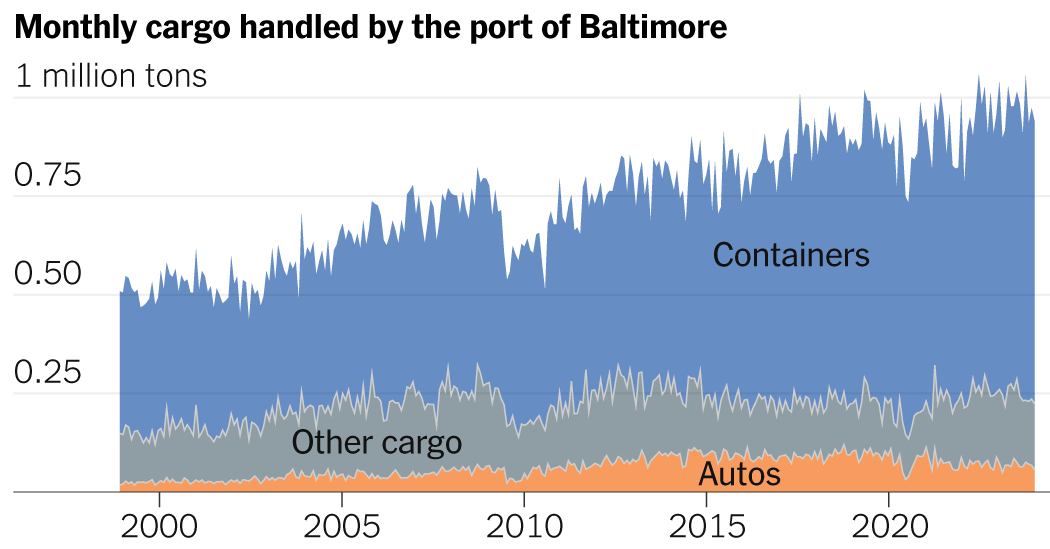
 News
News 
The collapse of the Francis Scott Key Bridge has brought the Port of Baltimore, an important trade hub, to a halt.
The port handled a record amount of foreign cargo last year, and it was the 17th biggest port in the nation overall in 2021, ranked by total tons, according to the Bureau of Transportation Statistics.
It ranks first in the United States for the volume of automobiles and light trucks it handles and for vessels that carry wheeled cargo, including farm and construction machinery, according to a statement by Gov. Wes Moore of Maryland last month.
Around the world, about 40 ships, including 34 cargo vessels, have Baltimore listed as a destination, including 10 commercial ships with anchors dropped in nearby waters, according to MarineTraffic, which tracks ships.
Georgios Hatzimanolis, who analyzes global shipping for MarineTraffic, said he expects the bridge collapse to cause shipping delays. “We do expect there to be a ripple effect,” he said.
The Port of Virginia this afternoon will receive a vessel that was previously bound for Baltimore, and others will soon follow, said the port’s chief executive, Stephen Edwards. Shipping lines that use Baltimore are diverting their vessels to other ports on the East Coast. “Between New York and Virginia, we have sufficient capacity to handle all this cargo,” Mr. Edwards said, referring to container ships.
East Coast ports are expected to handle the traffic diverted from Baltimore, but trucking companies that transport goods out of the ports could struggle with the extra loads, according to logistics experts. “It’s going to cause a lot of chaos,” said Paul Brashier, vice president for drayage and intermodal at ITS Logistics.
The port in Baltimore, which supports more than 15,000 jobs, has also increasingly catered to large container ships like the Dali, the 948-foot-long cargo vessel carrying goods for the shipping giant Maersk that hit a pillar of the bridge around 1:30 a.m. on Tuesday. The Dali had spent two days in Baltimore’s port before setting off toward the 1.6-mile Francis Scott Key Bridge.
The arrival of large container ships to the port “continues to demonstrate Baltimore’s capabilities of handling supersized vessels,” Governor Moore said in the statement. The largest container ship ever to enter the port, as of February, arrived last year with the capacity to carry more than 15,000 20-foot containers.
24World Media does not take any responsibility of the information you see on this page. The content this page contains is from independent third-party content provider. If you have any concerns regarding the content, please free to write us here: contact@24worldmedia.com